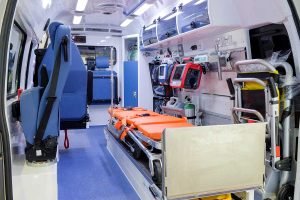The HOPE score, based on covariates available at hospital admission, predicts the probability of in-hospital survival after extracorporeal life support (ECLS) rewarming of a given hypothermic cardiac arrest patient with accidental hypothermia. Our goal was to externally validate the HOPE score.
Authors: Mathieu Pasquier, Valentin Rousso, Tomasz Darocha, Pierre Bouzat,
Sylweriusz Kosiński, Keigo Sawamoto, Benoit Champigneulle, Sebastian Wiberg,
Michael C. Jaeger Wanscher, Monika Brodmann Maeder, Peter Paal, Olivier Hugli
Methods: We included consecutive hypothermic arrested patients who underwent rewarming with ECLS. The sample comprised 122 patients. The six independent predictors of survival included in the HOPE score were collected for each patient: age, sex, mechanism of hypothermia, core temperature at admission, serum potassium level at admission and duration of CPR. The primary outcome parameter was survival to hospital discharge.
Results: Overall, 51 of the 122 included patients survived, resulting in an empirical (global) probability of survival of 42% (95% CI = [33–51%]). This was close to the average HOPE survival probability of 38% calculated for patients from the validation cohort, while the Hosmer–Lemeshow test comparing empirical and HOPE (i.e. estimated) probabilities of survival was not significant (p = 0.08), suggesting good calibration. The corresponding area under the receiver operating characteristic curve was 0.825 (95% CI = [0.753–0.897]), confirming the excellent discrimination of the model. The negative predictive value of a HOPE score cut-off of <0.10 was excellent (97%).
Conclusions: This study provides the first external validation of the HOPE score reaching good calibration and excellent discrimination. Clinically, the prediction of the HOPE score remains accurate in the validation sample. The HOPE score may replace serum potassium in the future as the triage tool
when considering ECLS rewarming of a hypothermic cardiac arrest victim.
Keywords: Cardiac arrest, ECMO, ECPR, Hypothermia, Accidental, Potassium, Resuscitation, Triage





